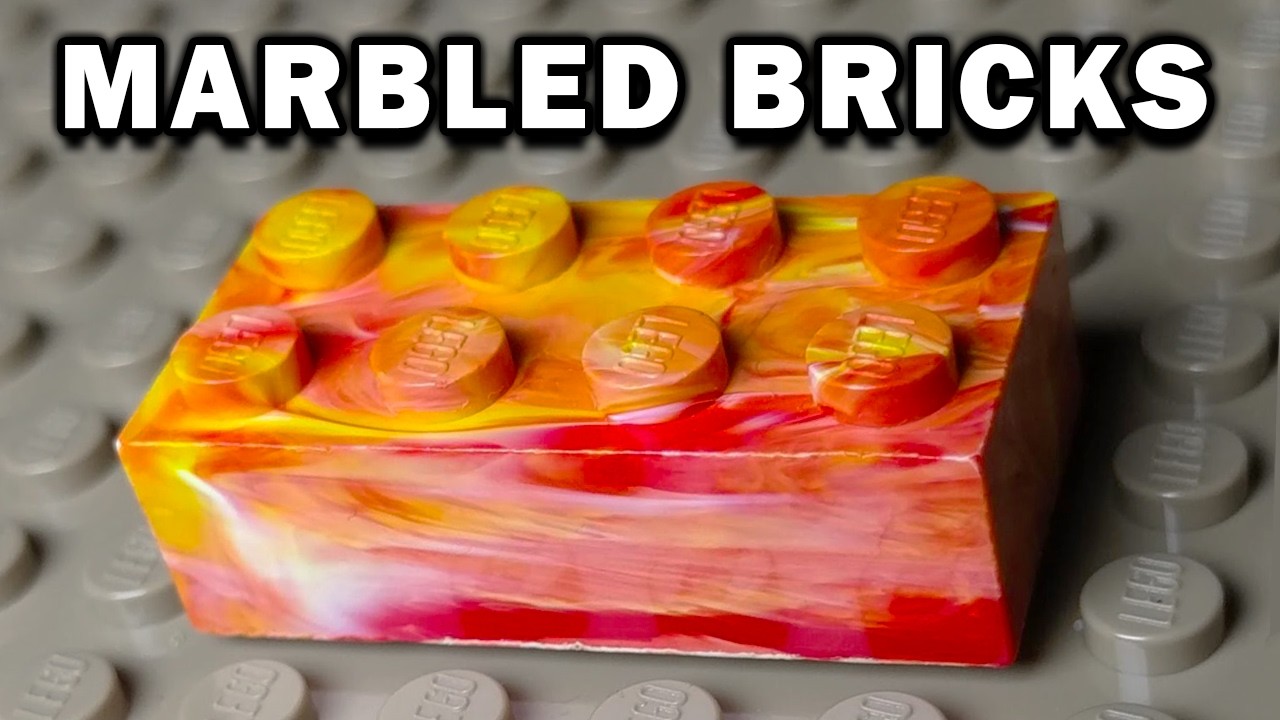It seems these bricks were made in the late 1970s without Lego’s authorization, by rogue employees developing new types of plastic and experimenting with their molds and various plastic colors.
It is unknown just how many of these bricks were made, but they are extremely valuable, and in my opinion and many others, very beautiful.



While some pieces of SpitBrix’s videos are accurate and interesting, he does often embellish for his viewers. The thesis of this video relies on these two points that SpitBrix makes:
In Lego’s standard manufacturing process, standard manufacturing marbled scrap [I’m abbreviating this to SMMS from now on] are “error bricks and manufacturing waste” and must be destroyed.
Grangemouth bricks were made beyond the permits of standard manufacturing, and they also look similar to SMMS
Ergo, Lego is actively seeking and destroying the Grangemouth bricks and hates them with a passion?
This conclusion seems tenuous and dubious to me. While both points on their own are true, there seems to be a leap in logic that SpitBrix doesn’t back up. He creates a potentially false equivalency between Grangemouth bricks and SMMS. I think this error is best underlined by his line at 4:36 “And if Lego is so keen to keep these particular bricks out of the public’s hands, then where did all of these colorful samples come from?”, with “these particular bricks” referring to SMMS, and “these colorful samples” referring to Grangemouth bricks; SpitBrix contends that SMMS and Grangemouth are categorically the same according to Lego, but he doesn’t explain why that must be. While the pieces themselves may look similar, the differing circumstances of their creations may distinguish them in the eyes of The Lego Company.
SpitBrix provides no examples of Lego expressing a desire or action to specifically destroy the Grangemouth bricks (in contrast to SMMS), nor does he provide any examples of Lego internally or externally expressing ire for the public having the Grangemouth bricks (in contrast to just the misuse of their mold and production rights). In fact, the two examples he gives of Lego expressing thoughts on the bricks themselves were each positive or plausibly positive: @8:30 with Lego possibly approving the release of the Grangemouth bricks into the public, and @10:20 with Lego finding the Grangemouth bricks to be a lighthearted subject to make an April Fool’s Day joke about them.
The information presented in the video seems to mildly suggest the opposite of the thesis itself. While the conclusion could still plausibly be correct, the lack of solid evidence makes it seem spurious. In a pinned comment on the video, SpitBrix says “An extensive amount of time went into researching, scripting, and editing this mini-documentary.” If he could provide any sources that have proof of his claim itself, or if anybody else can find any other source to verify it, that would be immensely helpful.
well said. I can’t remember the title, but I watched a documentary on the Lego company a few years ago. iirc, at one point, when they were showing some of the manufacturing process, they showed a fucked up brick, and how they try to destroy anything like that, because people act like they’re stupid-valuable, so they try to stop that stuff from getting to the public (as I understood it) almost as a way protect idiots from themselves. I get it.